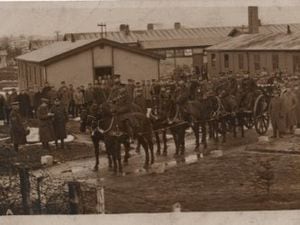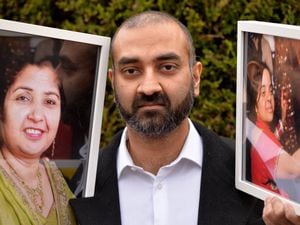Midlands scientist: My role in drive for UK's vaccine
A scientist originally from the Midlands has told how he worked 14 hours a day as part of the team helping to make the Oxford AstraZeneca vaccine a reality.
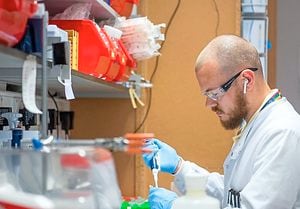
Today Jordan Barrett added his voice to those urging people to take up the jab when it is offered.
As vaccination centres across the region expand dramatically, Mr Barrett described what it was like helping to develop the jab, which will help to protect millions of people across the UK.
The former Telford schoolboy said: “To be a vaccine scientist and work on a trial and potentially be vaccinated with a vaccine I helped with is amazing and gratifying.
"It’s an amazing achievement by people around the world who came together to work to get out of this situation. It puts faith into the science for me.”
The early approval of the Oxford vaccine allowed the UK to forge ahead with vaccinations while other European countries were continuing to talk about their programmes and argue about the distribution of jabs across the EU.
With a number of new vaccination centres opening up in the West Midlands and Staffordshire, it is hoped the ramping up of jabs will help the UK meet its target of reaching 15 million people by mid-February.
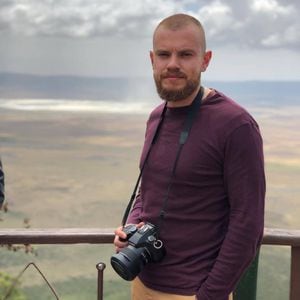
Mr Barrett, 25, is originally from Telford but now lives in Oxford after graduating from Oxford University in biochemistry.
He specialised in assessing how people’s immune systems respond to the Oxford AstraZeneca vaccine, allowing the team developing the jab to work out how best to give it.
Experts say a single jab protects those receiving it from getting seriously ill and the second jab offers further protection.
It is too soon to say if the vaccine also stops people passing the infection on.
Mr Barrett, who attended The Lord Silkin School and New College Telford, said he and his colleagues were under intense pressure to get data out on antibody responses.
He said he and his colleagues were working up to 14 hours a day, six days a week and that meticulous work was carried out.
Today he reassured those who are still concerned about having a vaccine, saying that he cannot wait to get protection himself.
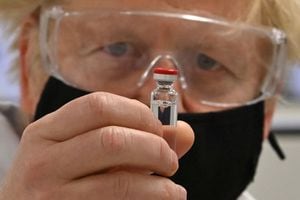
He said: “People might not think they will get ill but they could transmit it to other family and friends. And those that are vulnerable are at real risk of being very ill themselves.”
Ministers say they are confident the supply of the vaccine will be maintained despite a dispute with the EU over distribution.
Mr Barrett became involved with the Oxford AstraZeneca vaccine around the start of the pandemic last year.
He joined the research team in 2017 as a research assistant, and works on blood-stage malaria clinical trials.
But when Covid-19 began sweeping the UK, Jordan became involved in setting up antibody assays to test how people’s immune systems respond to the Oxford AstraZeneca vaccine.
It was done to measure the types of antibodies produced in response to the vaccine and how much was produced.
Antibodies are specialised, Y-shaped proteins that bind like a lock-and-key to the body’s foreign invaders — whether they are viruses, bacteria, fungi or parasites.
Volunteers
Alongside his colleagues, he tested hundreds of volunteers and the research has been published in papers documenting antibody responses seen after a single and booster dose.
“There were different groups of people; we looked at people who had a single dose, those who had got the booster dose and older adults who had the vaccine,” said Jordan.
"There was a strong drive to get this data ready and out.
“It was essentially my full time job. I didn’t have time for much else.”
The intensive workload sometimes saw him working up to 14 hours a day, six days a week.
“It’s been incredibly strange. When coronavirus was starting to spread around we didn’t think it would end up like this,” said Jordan.
“I enjoy being in a lab and discovering new things. It’s really rewarding."
He says it is now incredibly important for people to have the vaccine and he will be lining up for his shot when it is his turn.
Group effort
“This project and other vaccine projects are the work of so many different people and lots of people are still working hard with these vaccines, it’s an amazing group effort," he said.
The Oxford AstraZeneca vaccine is being made in Britain by two biotech companies – Oxford BioMedica and Cobra Biologics, based at Keele Science Park, Staffordshire.
Another company, Wockhardt, based in Wrexham, fills the vials and packages them for use.
Meanwhile, the Pfizer-BioNTech jab is being imported from Belgium.
A third vaccine, from Moderna, has also been approved and is likely to become available in April.
The Government aims to offer vaccines to 15 million people – the over-70s, healthcare workers and those required to shield – by mid-February and millions more of the over-50s and other priority groups by spring.
By autumn, it is hoped the rest of the adult population will be offered a vaccine.
People are being asked to be patient and wait until they are contacted by the NHS and invited for an appointment.

